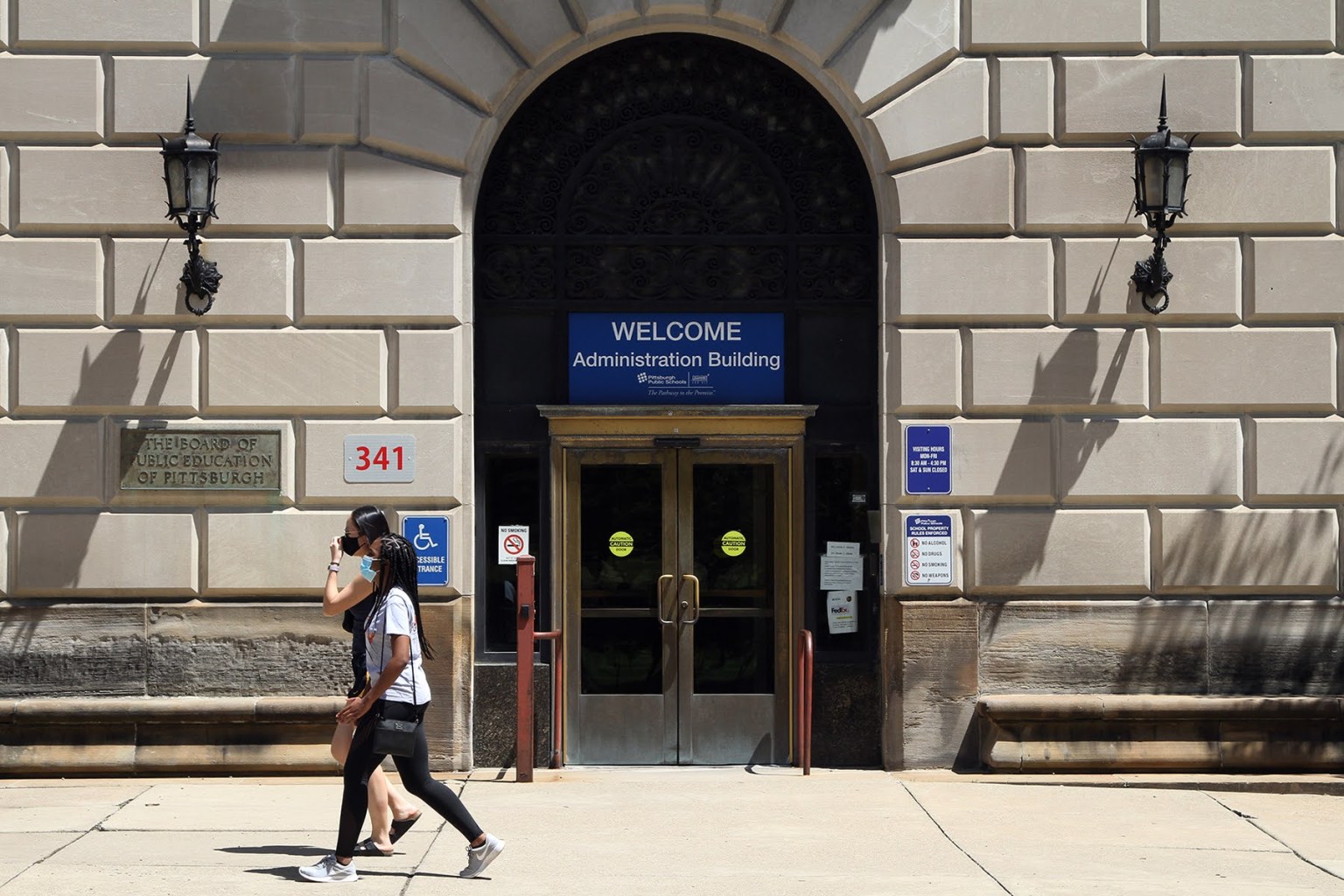The administration building of Pittsburgh Public Schools in Oakland. (Photo by Ryan Loew/PublicSource)
Community members highlighted the increased spending on security services and what some see as a lack of investment in special education funding.
by Lajja Mistry, PublicSource
Pittsburgh Public Schools’ 2023 budget has been described as “status quo,” but without concrete long-term solutions to stabilize the operating deficit and amid dependency on one-time federal funding, the district’s future financial health could be vulnerable to unforeseen economic changes.
The district [PPS] introduced a preliminary general fund budget of $675.9 million for 2023. The proposed budget is an increase of 1.5% from the previous year. The district’s revenue projection remains at $666.7 million.
Pandemic relief funding coupled with reductions to the budgetary reserve and revenue from last year’s tax increase are helping to provide short-term stability and limit the operating deficit to $9.2 million.
The American Rescue Plan’s Elementary and Secondary Schools Emergency Relief [ESSER] funds are intended to support COVID-19 response efforts. The district received $11.1 million in ESSER I funds to purchase technical equipment and supplies. It aims to use $50.1 million of ESSER II funds to bolster current investments such as wireless technology infrastructure and summer learning programs. The ESSER funds may be used through Sept. 30, 2024.
The district faces various challenges from declining enrollment and increased charter school costs to rising expenses associated with health care, salaries and transportation.
At a public hearing on Monday evening, five community members gave testimony about their concerns. Their comments ranged from the need to invest in students with disabilities and restorative justice programming to a call to divest from security services.
The district faces a growing operating deficit projected for 2024 and beyond, when the district can no longer count on ESSER funds.
PPS Chief Financial Officer Ronald Joseph said in an interview with PublicSource that the 2023 budget’s main priority is to ensure continuing stability by allocating resources in a way that provides students with the services they need. “We know that there’s going to be a need for a change in the future as evidenced by our structural deficit, but we know we need to be thoughtful around that,” he said.
According to the district’s proposed budget, about 48% of the expenditures are staff salaries and benefits. Other significant expenses include special education, transportation, debt service and charter school costs. The district must pay tuition based upon a statutory funding formula for each of its students who opt for charter schools. Local sources, such as property taxes and earned income taxes, comprise 58% of the district’s anticipated revenue while 41% is to come from state sources. The district will use 1.3% of its $86.28 million fund balance as revenue.
What does the community want for PPS students?
Angel Gober, executive director of 412 Justice, an organization that focuses on economic, environmental and educational justice issues, said the district should re-evaluate its public safety budget to prevent over-policing. “Invest into school climate and positive school culture practices,” she said.
